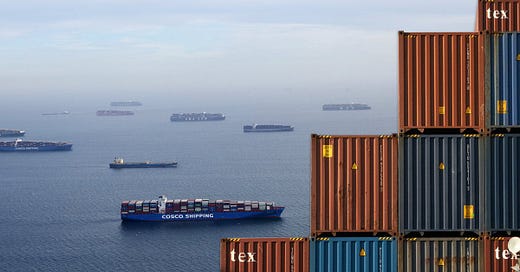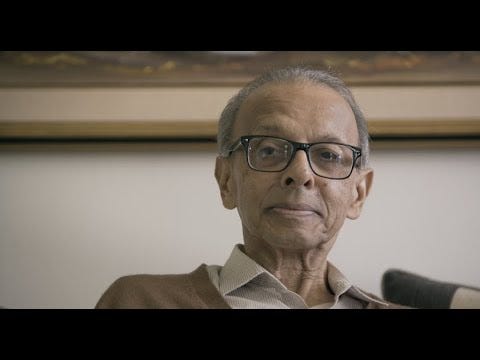

James Gleick gave a great example of why efficiency should not be optimised beyond a point in his book, Chaos.
The example he used was of major airports, where flights took off and landed every 15 seconds or so. Alternating between a landing and a takeoff, efficiency parameters were pushed to the limit.
But if an airplane developed a snag on the ground while taxiing towards take off, it threw everything out of gear.
Finding another crew to replace the existing one, transferring passengers to a different flight and managing the schedules of all the other flight affected leads to chaos - and major losses for each of the affected airlines.
We're hearing of similar issues with supply chains across the world. Unloading at ports is taking weeks. Containers are in short supply. Drivers aren't available at refineries in Britain to refuel petrol stations, leading to major shortages.
Covid is one of the culprits, for sure. With people stuck at home during lockdowns, it isn't clear what will go down and when.
We got so obsessed with productivity, everything was pushed to the breaking point.
Christmas shopping in the US is under threat and all the big chains are scrambling to ensure supplies in the critical phase.
But the fact is, new unknowns suddenly make an appearance, creating ripples right across the chain and affecting end points.
Millions of cars could not be manufactured because of a shortage of chips.
We thought Covid only affects people, but it has also made economies sick.
And for that, there's no vaccine in the works.
Does automation cut quality while cutting costs?
Mass production leads to lower prices, for sure.
It also makes products affordable for a large set of people.
At the same time, it is evident that something is lost in the process.
The average mass-produced scissors are good enough.
But for people who want the finesse of perfectly matched and balanced scissors, it costs a lot more.
Earnest Wright in Sheffield makes scissors that cost around 350 pounds. Seems like an enormous price to pay but they have a set of customers who won't use anything else.
Watch a video of the process to see how much goes into the making.
Everything boils down to the final 'putting-together' of the two blades. It's painstakingly worked to the point where the scissor slices through cloth like a surgeon's scalpel.
There are just two people at the factory who can hone the final process and both of them are in their 70s.
They make only a few pairs every day and that craftsmanship is what people swear by.
But the level of detail and the apprenticeship demands years of experience. It isn't easy or even particularly interesting work.
Automation, on the other hand, removes people from the process altogether. But it also removes all elements of individual craft.
Most people would not even realise what they're missing. But for those who know the difference and can afford it, it becomes a treasured possession.
Long-lasting quality is a part of the mystique. What's even rarer is the human element of dedication, pushing each piece to a pinnacle while automation spits out passable new pieces every second.
The MacArthur prize recognises that change is hard
It does not have the glamour of the Nobel.
People don't work towards getting a MacArthur prize because they can't.
No one can nominate a potential prize winner.
Since 1978, the foundation has handed over $6.8 billion in grants to winners.
They include people doing pioneering work to remove racial discrimination. Or writing about cultural themes not part of the mainstream. Artists and activists as well.
The objective is to find people doing things to improve lives in communities in their own special way without looking for financial reward.
John MacArthur, the man in whose name the prize is instituted made his fortune in the insurance business. In life, he was the hard-charging businessman who was ruthless and hard to deal with.
But the foundation he left behind focuses on the pockets of change that add up to the larger picture.
It's one of those riddles of human nature where the legacy of the man is at odds with the person he was in real life.
There is no fixed number of awards to be given out every year. But the people responsible go into the field after reading or hearing of the work that potential prize winners do.
It comes as a shock to every one of them. $625,000 is paid out over a period of five years.
The idea is that they should get on with what they do best without having to worry about money for their personal needs.
Out of personal selfishness came the award that rewards selflessness!
Every week, I'll plant a few ideas in your mind on branding, behavior and markets. Triggers for your thoughts. Spread the word to your friends. All you have to do is click the link and enter an email address.












Share this post